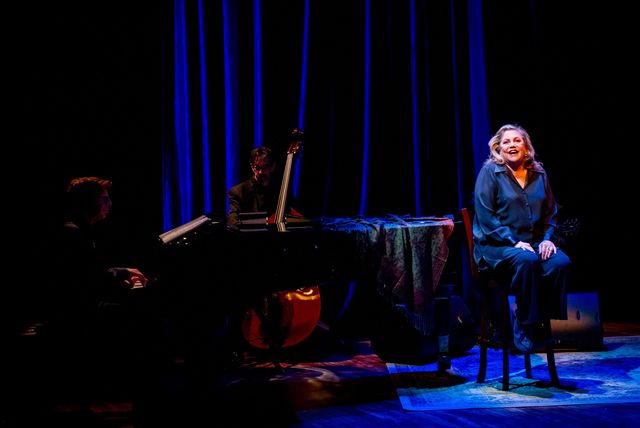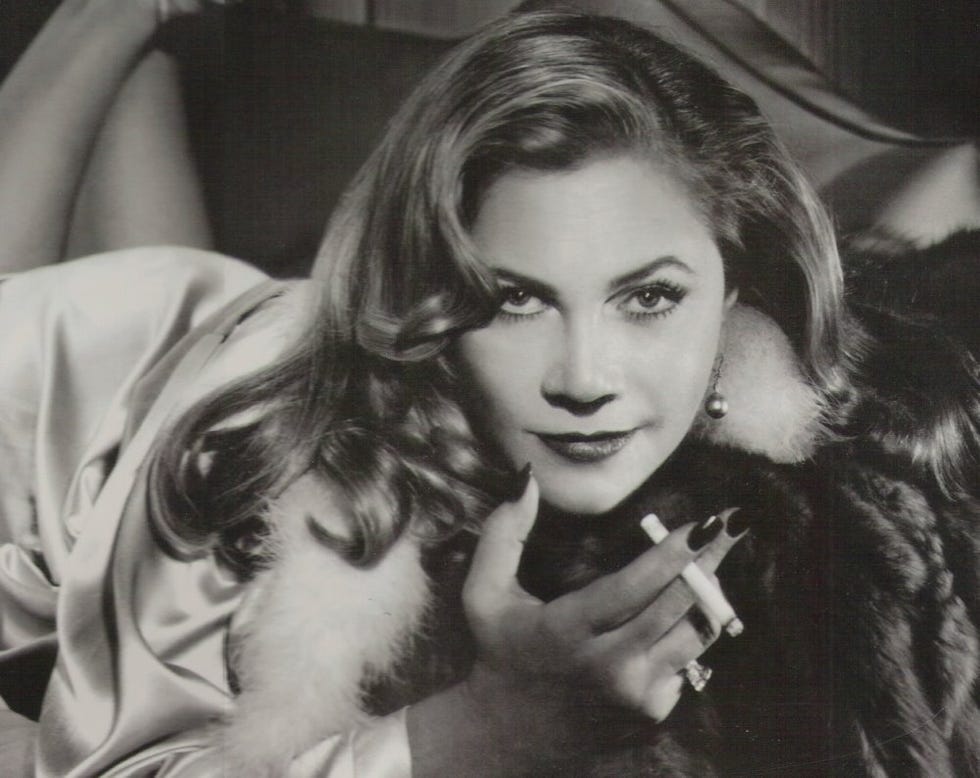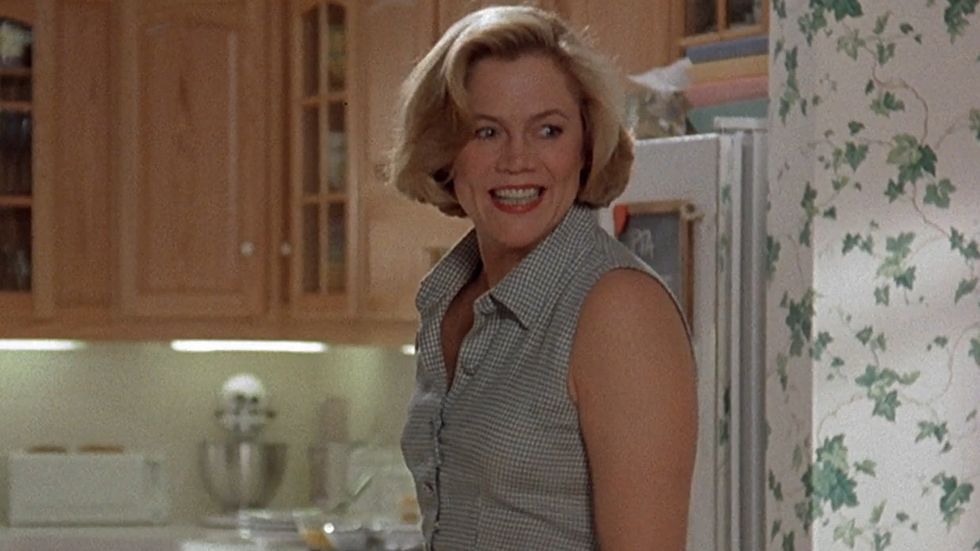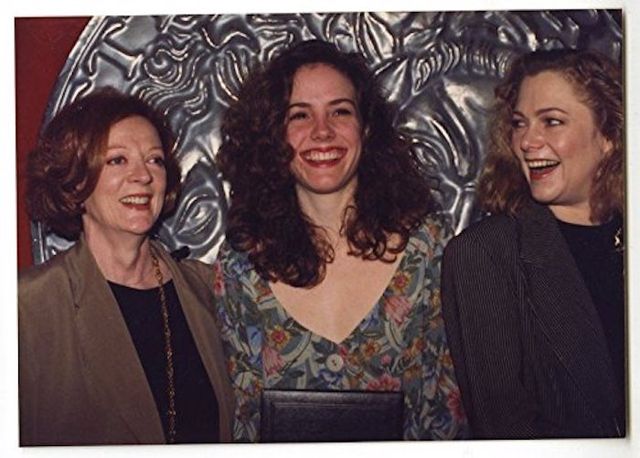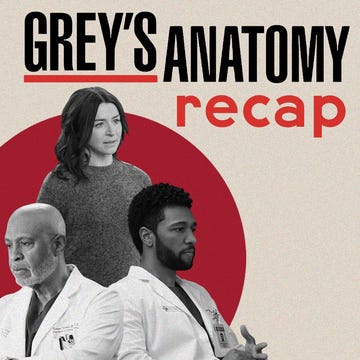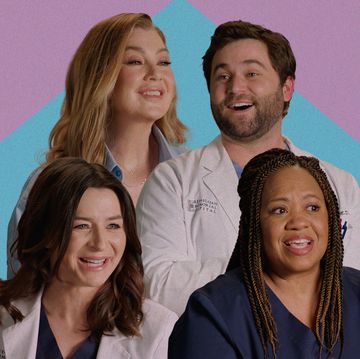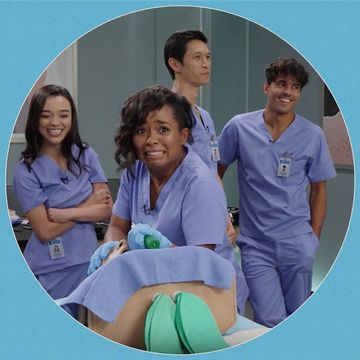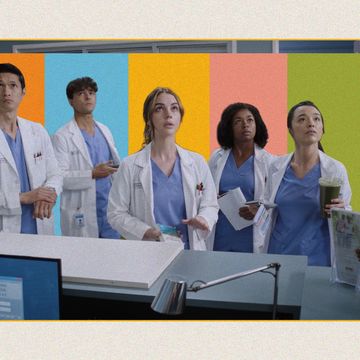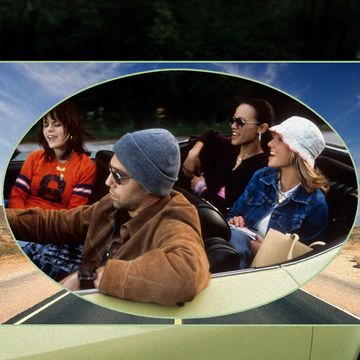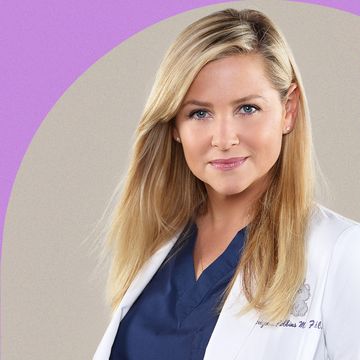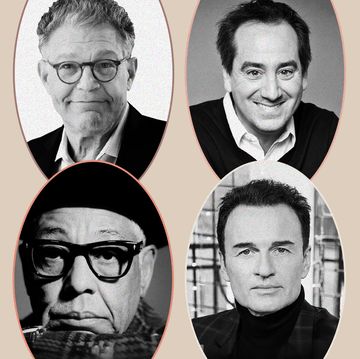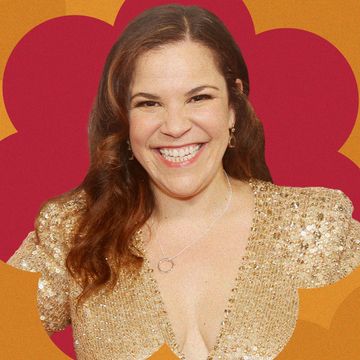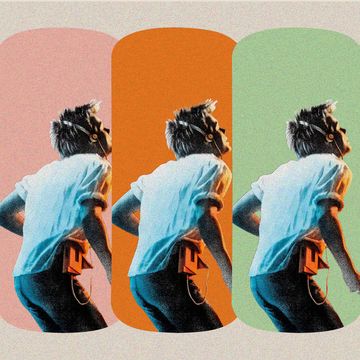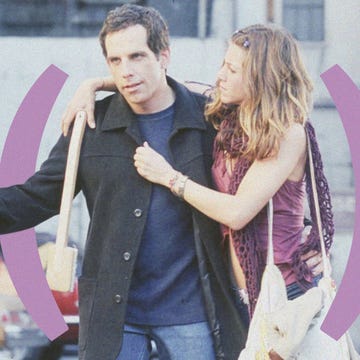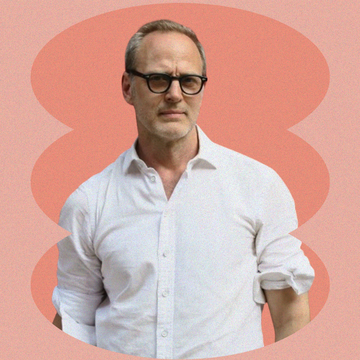Many of us might be hard-pressed to separate Kathleen Turner from the iconic roles that have defined her career: Peggy Sue in Peggy Sue Got Married (which nabbed Turner an Oscar nom); Joan Wilder in Romancing the Stone; Matty Walker in Body Heat; or the husky voice of Jessica Rabbit in Who Framed Roger Rabbit?.
But, in recent years, the Golden Globe-winning actress has pulled together a show that tells the story of her life from a perspective many of her fans aren't familiar with: behind the screens. The Hollywood legend’s one-woman production, Finding My Voice, comes to The Green Room 42 in New York City this month and traces parts of Turner's personal life, from being the daughter of a diplomat to her struggles as a young actress to her diagnosis of rheumatoid arthritis. It also highlights her stage career — which saw her star in canonical shows like Cat on a Hot Tin Roof to Who’s Afraid of Virginia Woolf? — alongside hilarious anecdotes about working in Hollywood.
Part-diary, part-musical, Turner sings classics from the American songbook, be it Let’s Fall in Love or Every Time We Say Goodbye, as part of the show. The songs are peppered with her life stories in between, which are comical, concise and sometimes dramatic — and new additions will be added for this New York edition, after touring London, Chicago and San Francisco.
While she's had a long and storied career, the actor, director and New York University professor says that Finding My Voice finally takes fans inside her own life.
“It’s about me, my life, my adventures, what I've learned, what I believe in,” says Turner, who recently guest starred in Dolly Parton's Heartstrings and alongside Michael Douglas in The Kominsky Method. She'll also soon pop up on episodes of CBS's Mom.
Before bringing Finding My Voice back to New York, Turner spoke to Shondaland about not voting for Donald Trump, being a life-long New Yorker and why she’s now having the time of her life.
NADJA SAYEJ: How does it feel to be bringing Finding My Voice back to New York City?
KT: Well, it’s much more complete. When I did it at the Café Carlyle, I didn’t have quite as much material. I also cut it because of their requirements — which, I tell you, I will not do again because the show is complete as it is. I don’t want to cut it to fit anyone else’s cloth.
NS: What did they make you cut?
KT: It just wasn’t as full of a show — I started to develop it a year before. I did it in London for a while then brought it back to Café Carlyle. Then I got swallowed up in a bunch of other work for a while, because acting is still my primary job. When I got back to working on Finding My Voice, I had more experience, I had more stories to tell.
NS: Are there any new stories in the show?
KT: Oh yes.
NS: Do you want to share one?
KT: No! Come to the show. [Laughs] I can say I talk about the contrast in jobs I’ve gone through in the past year, from doing Dolly Parton’s Heartstrings, where I played an old hillbilly woman, to performing at the Metropolitan Opera. I love that some of my jobs are incredibly varied.
NS: Why is the show called Finding My Voice? Your husky voice is what a lot of people know you for.
KT: Well, they certainly don’t know me for my singing. That’s a large part of it — because I never explored it. I took it for granted. It didn’t interest me. Then I did Mother Courage and Her Children, and I thought, I really, really enjoyed that. So, I decided to keep exploring.
NS: What was the hardest story to tell?
KT: There was one story which I had to include because its such a large part of my life, which is when I found out I was diagnosed with rheumatoid arthritis. That’s not easy to tell, but I can’t ignore it, you know?
NS: How does it feel when you do tell stories like that?
KT: Well, there’s no hiding behind a character — that’s a little intimidating, but I enjoy it. We did shows in November in Chicago and I had a bass player and a pianist — we had such fun. We usually have intermission and we’re just laughing.
NS: What makes it fun for the audience?
KT: I’m a good storyteller, honey!
NS: The show also takes us on a journey about what it’s like being the daughter of a diplomat.
KT: I do, yes. It's explaining where I come from, which is a mixed bag. Its not your basic midwestern girl. We moved from country to country.
NS: Are you a diplomatic person?
KT: Yes, I would say that. The early training stuck.
NS: You’ve used the term “active happiness” before — what does it mean?
KT: In the show, I talk about the importance of having service in your life, “active happiness,” or things that actively make you happy.
NS: You teach a course on practical acting at NYU. Does teaching make you happy?
KT: I do love teaching. I’m very good at it, I can help people understand. I’m tough on them and I don’t take amateurs — only people who have a certain amount of skill. Otherwise, I don’t think I’d be very effective.
NS: Are you frank when something doesn’t work?
KT: Oh, I think you could say that. But I try not to hurt people.
NS: You’re doing them a favor when you tell them straight — that’s why they come to you.
KT: Well, I’m a really bad liar. [Laughs]
NS: What was it like working with John Waters on Serial Mom? It’s such an underrated film.
KT: We’re still good friends. I laughed every day — we all did. I had such fun. John Waters is one of the kindest, sweetest people you will ever meet. He has an outrageous sense of humor and he has this extraordinary ability, in his films, to take quite unattractive characters and make you care for them.
NS: You've been in the business for over 40 years, do you still think female leading roles dry up after women turn 40? Has Hollywood changed at all?
KT: No, not much.
NS: What would you hope to see changed?
KT: I would like to see the studios try and do something fresh, not repeat TV shows or comic books. That would be refreshing — to have new material, new voices, in the system. But I’m not holding my breath. The studios are basically banks now, not creative outlets.
NS: Is there a lot more freedom in the theatre world?
KT: Absolutely. The writing is so much better. In a film, the visual can be dominant while the storyline can become incidental. On stage, though, the script, the words — that's everything.
NS: Have you had a mentor?
KT: No, I can definitely say I did not have.
NS: As a teacher, you’re in a mentoring role.
KT: Maybe that’s why I love it so much.
NS: Is there anyone you look up to?
KT: Yes, Maggie Smith.
NS: Why?
KT: She’s outrageous, wonderful, and has become a good friend over the years. She’s intuitive. She knows every note when something is off or sour. I think her instincts are stunning, and yet, she’s completely understated. She’s really quite an extraordinary artist.
NS: Turning to politics, care to share who you are you voting for?
KT: Not Trump. But I don’t know yet. Too soon to say.
NS: When you met him, his handshake, you said, was gross?
KT: It was. I met him a few times in the 1980s in New York.
NS: How has New York changed?
KT: So much. All this stuff on the Upper West Side has gone up. When I moved here, I shared an apartment up at 99th and West End, which was a very iffy, dangerous neighborhood. Columbus Avenue, Amsterdam Avenue — it was all these individual stores. Now it's all franchises. That’s kind of disappointing. But I did love the Hudson River Park and what they’ve done there. I can’t imagine living anywhere else.
NS: Do you get recognized often in New York?
KT: When they hear my voice, yes.
NS: What’s your reaction?
KT: I feel flattered and thank them. They’ll often say they’ve been fans for many years and I appreciate that very much. It's not tough to be told that they like your work.
NS: What do you do for self-care?
KT: It’s a constant battle, right now. Pilates — I’ve been doing it for 20 years and its essential to me. I try to eat well and all the basics. I just got an excellent report from my doctor this morning, which I’m happy to say!
Nadja Sayej is an arts and culture journalist based in New York City who has written 5 books, including Biennale Bitch and The Celebrity Interview Book. Follow her on Twitter @nadjasayej.
Get Shondaland directly in your inbox: SUBSCRIBE TODAY
